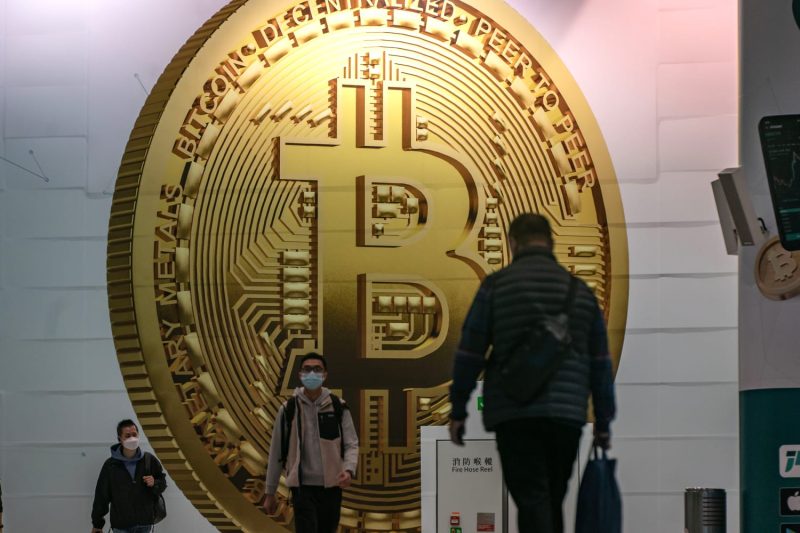Hamas says it is willing to release US-Israeli hostage and bodies of four dual nationals
Bitcoin approaches all-time high after surpassing $65,000


The price of bitcoin soared past $65,000 Monday, putting it within striking distance of its all-time high reached in November 2021.
The cryptocurrency has gained 48% in 2024 and is approaching the intra-day all-time high of more than $68,000.
The latest rally is being fueled by hopes that the launch of bitcoin exchange-traded funds, or ETFs, will expand the pool of bitcoin buyers.
The Securities and Exchange Commission approved ETFs in January to make it easier for investors to gain exposure to the price movements of bitcoin as part of diversified portfolios without having to go through the sometimes-onerous process of owning the digital coins themselves.
The ETFs have collectively already attracted billions of dollars of investments.
The cryptocurrency world is also banking on a price rally coming after a technical event known as ‘halving’ occurs in April. That causes the rate of supply of new bitcoin to decline. So if demand remains unchanged or even grows, the price goes up.
Bitcoin remains highly controversial, and many mainstream investment experts and market regulators urge caution about investing in it. For instance, SEC Chair Gary Gensler said the agency’s ETF approvals were not an endorsement of bitcoin, calling it a “speculative, volatile asset.”
And in a blog post in January, executives at the financial giant Vanguard echoed that view, saying cryptocurrencies like bitcoin are ‘more of a speculation than an investment,’ which is why the company does not offer crypto products.
‘With equities, you own a share of a company that produces goods or services, and many also pay dividends,’ Vanguard said. ‘With bonds, you get a stream of interest payments. Commodities are real assets that meet consumption needs, have inflation-hedging properties, and can play a role in certain portfolios.’
‘While crypto has been classified as a commodity, it’s an immature asset class that has little history, no inherent economic value, no cash flow, and can create havoc within a portfolio.’











